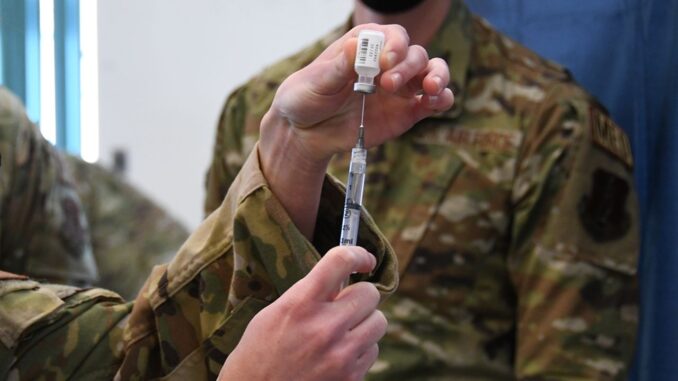
The US military may have to pay out billions in back pay and legal fees depending on the outcome of three class-action lawsuits.
The lawsuits were filed on behalf of service members who say they were wrongfully discharged for refusing to take the COVID-19 ‘vaccine’.

BYPASS THE CENSORS
Sign up to get unfiltered news delivered straight to your inbox.
You can unsubscribe any time. By subscribing you agree to our Terms of Use
Latest Video
The plaintiffs claim that the military could not legally mandate vaccines issued under Emergency Use Authorization (EUA), as happened with the Covid vaccines, and that it was nearly impossible for service members requesting a religious exemption to have those requests approved.
The Defender reports: Dale Saran, who is the lead attorney for the plaintiffs, told Fox Business his legal team represents “basically everybody who got kicked out, discharged or dropped to the IRR [individual ready reserve] as a result of not taking the vaccine.”
This could include more than 100,000 former service members, according to the plaintiffs’ legal team, led by Saran and two other attorneys: Brandon Johnson and J. Andrew Meyer.
It’s unclear how many service members were involuntarily discharged for refusing the vaccine, but estimates range from more than 8,000 to just under 2,000.
Fox News last week reported, “thousands of troops unsuccessfully sought religious exemptions from the inoculation, including 8,945 soldiers, 10,800 airmen and guardians, 4,172 sailors, and 3,717 Marines.”
Regardless of the actual number, the U.S. Army is trying to get members who were involuntarily discharged to reenlist, according to an undated letter that surfaced last week.
The letter states:
“We write to notify you of new Army guidance regarding the correction of military records for former members of the Army following rescission of the COVID-19 vaccine requirement. As a result of the rescission of all current COVID-19 vaccine requirements, former Soldiers who were involuntarily separated for refusal to receive the COVID-19 vaccine may request a correction of their military records from either or both the Army Discharge Review Board (ADRB) or the Army Board for Correction of Military Records (ABCMR).”
Defense Secretary Lloyd Austin on Aug. 24, 2021, mandated members of the U.S. military get the COVID-19 vaccine.
However, in late 2022, Congress passed the 2023 National Defense Authorization Act, which required Austin to rescind the mandate, which he did on Jan. 10, 2023.
The three lawsuits — Bassen v. The United States of America, Botello v. The United States of America and Harkins v. The United States of America — were filed Aug. 4 in the U.S. Court of Federal Claims, “seeking back pay and other compensation, as well as reinstatement and other non-monetary relief, for all current or former members of the U.S. Armed Forces harmed by the illegal COVID-19 vaccine mandate.”
The U.S. government has filed motions to dismiss each of the three lawsuits.
Three separate lawsuits cover all military branches, National Guard, Coast Guard
According to the lawsuits, the U.S. government “has systematically violated service members’ religious liberties” via a “sham religious accommodation process,” and violated informed consent laws, the Military Pay Act, the Religious Freedom Restoration Act of 1993 and the National Defense Authorization Act (NDAA).
Saran told Fox Business there are three separate lawsuits, largely because of the way the U.S. Department of Defense (DOD) is set up.
According to the plaintiffs’ legal team, Bassen v. United States “is a class action filed on behalf of the approximately 8,500 active-duty service members who were involuntarily discharged … as well as any other active-duty service members who were forced into early retirement or were constructively discharged due to their vaccination status.”


